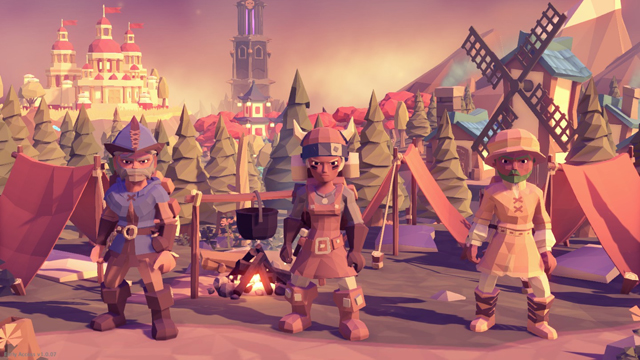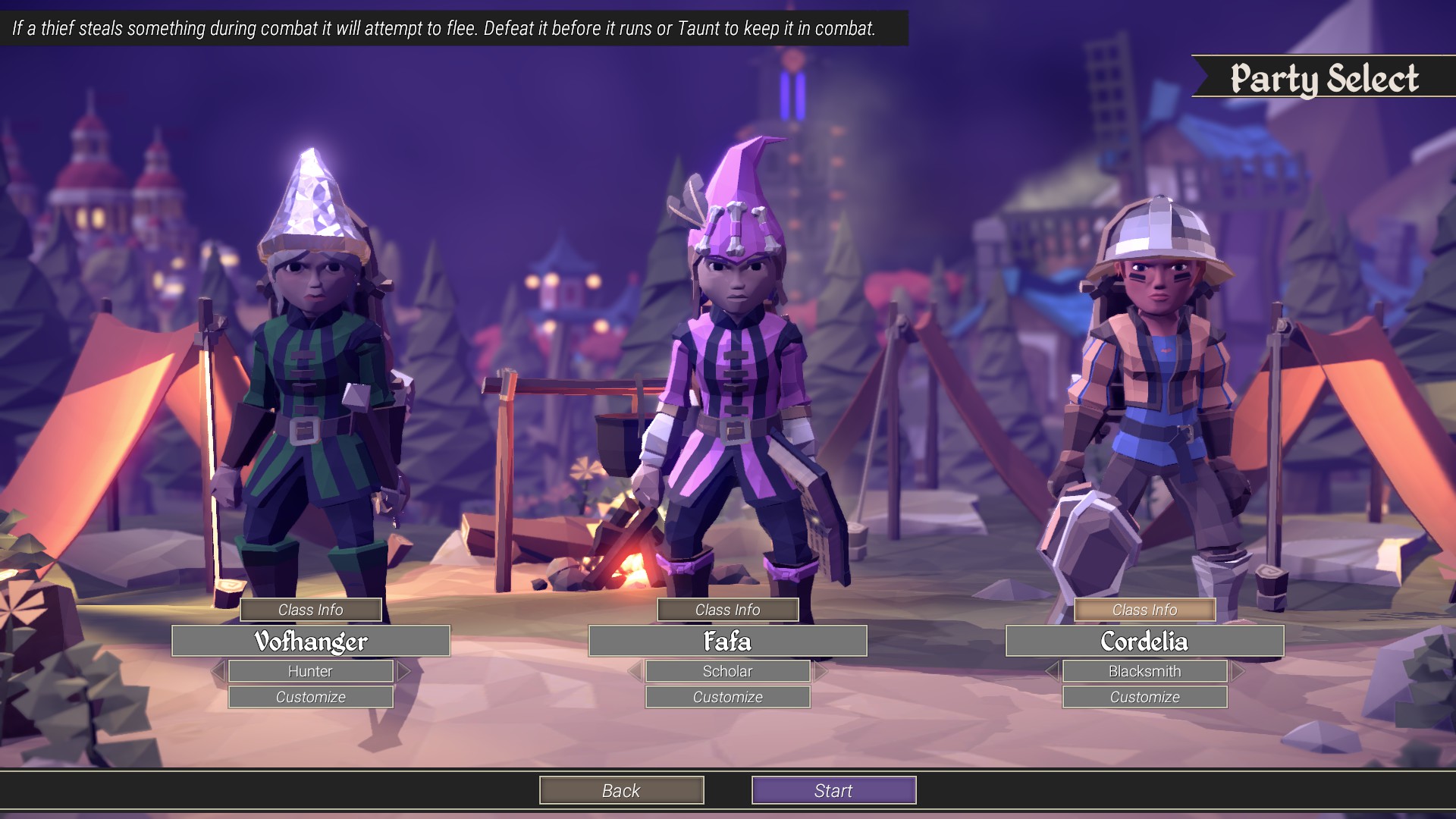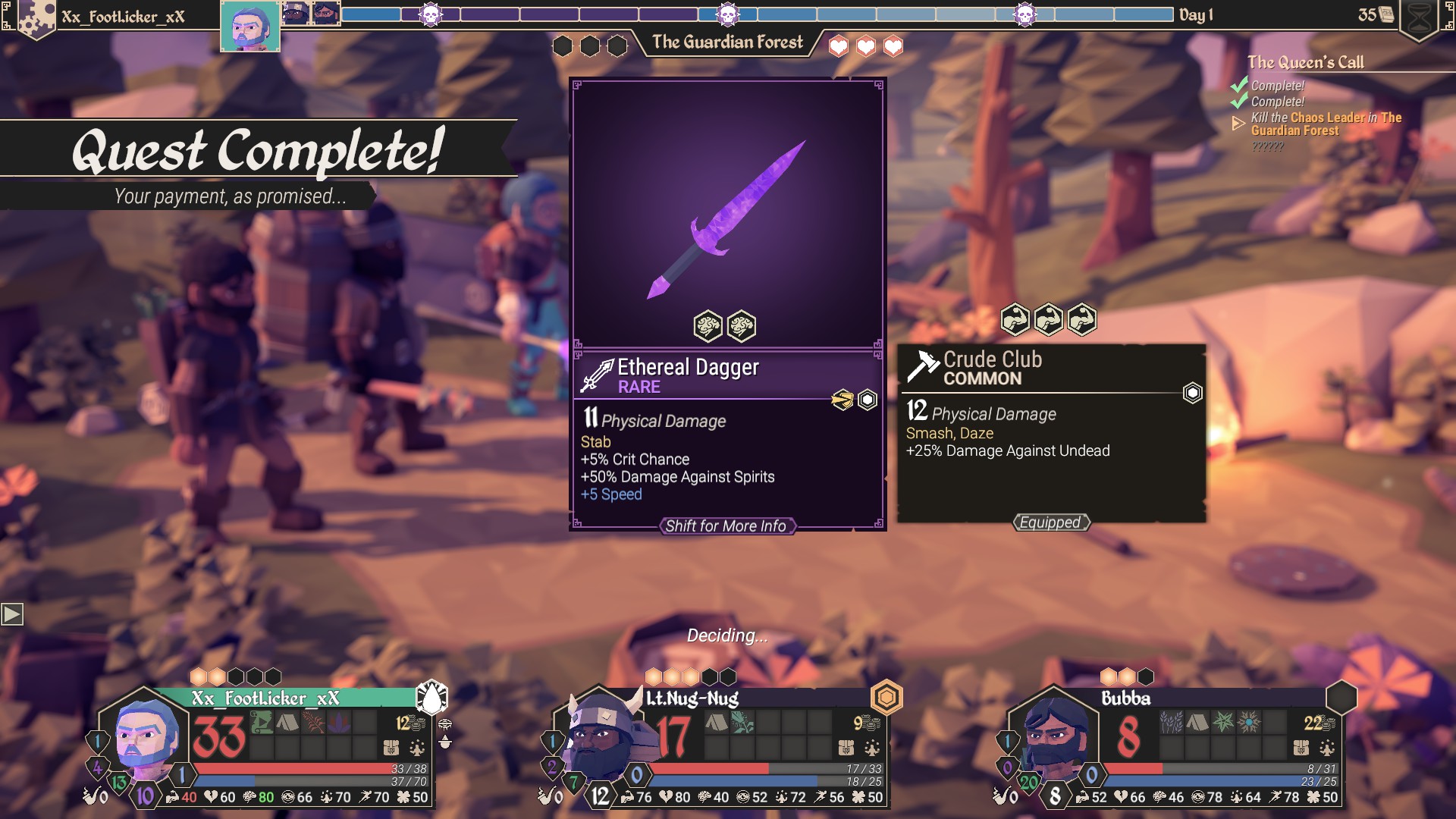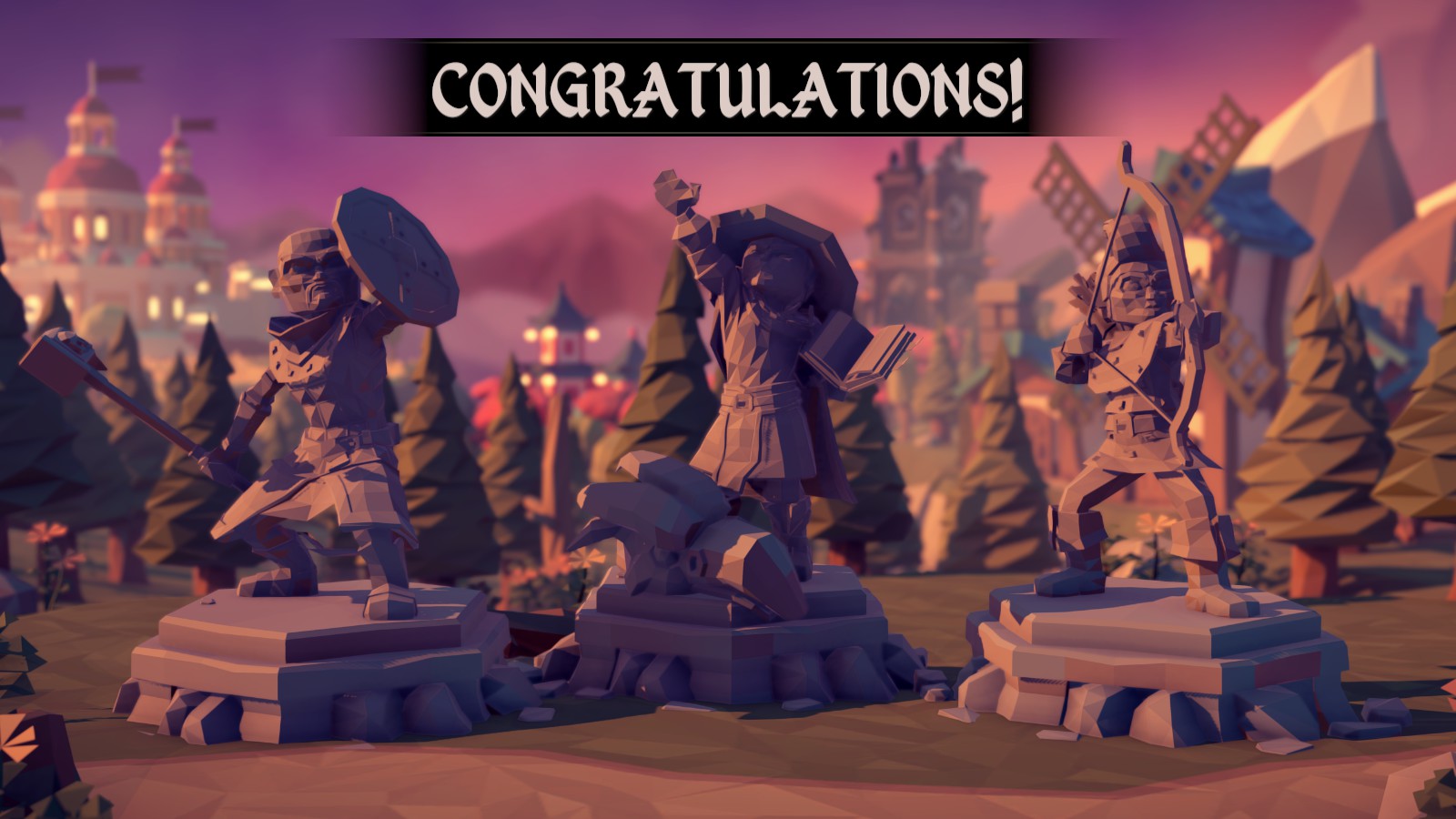For the King unites several gaming genres into one, which isn’t a surprise these days at all. It’s a roguelike, turn-based RPG with some neat mechanics, tabletop visual design, and a co-operative mode for three players.
The game isn’t particularly strong in terms of story, but it does deliver when it comes to game mechanics and all sorts of side-quests with their own twists and turns. In addition, For the King spices things up with a decent dose of RNG, which makes an already hard game even harder.
You guessed it right, For the King is a difficult game, and it really doesn’t matter even if you choose to play on the easiest difficulty. Soon you find yourself in a situation where you’ll be thinking, “All right, and how do I beat this thing?” That pretty much sums up what you can expect.
Character Creation
For the King offers you three game modes: a story-driven campaign, a dungeon crawl, and the so-called Frost Adventure — a whole new chapter that has been added since the game left Early Access.
All three modes are equally exciting to play, but one should always start with the campaign since this is where you learn all the game mechanics. Then, you are given the choice to select three heroes, regardless of whether you’re playing in solo or in co-op mode.
When creating a character, you can choose the looks of the character and its class. These correspond to melee, ranged, magical, and tanks. This sort of variety makes the gameplay so much more fun since you get to create a well-balanced team that supports each other.
Some characters are highly important, such as the Hunter, whose high level of Awareness allows him to land extremely precise shots with his bow. But again, in For the King, everything is reliant on a chance percentage, so all the passive skills and traits of any character only increase but don’t guarantee the probability of success.
Combat Mechanics
As you move along the procedurally generated map with your heroes, you will get to fight a lot with random enemies. Sometimes you will encounter more than one, and sometimes you will have to escape the fight due to the overpowered nature of the enemies.
The turn-based combat is quite simple and is completely tied to the weapons you’re using. The game checks your skill level for that specific weapon and decides how much damage you can deal depending on its stats. This means that you can’t go beyond what the weapon offers, which makes combat a bit underwhelming at times.
When attacking with a weapon, the game involves RNG in the form of coin flips. It is also possible to use the Focus ability to assure that more coins will flip successfully. I’m not sure if this system is entirely correct, but it definitely makes up for some unexpected moments during combat.
But weapons and their stats aren’t the only elements influencing combat, although they are the most impactful ones. Other mechanics, such as status effects (dazed, bleed, poison, etc.) and all kinds of buffs — including armor penetration, magic resistance, and many more — influence the outcome of combat as well.
But probably the biggest challenge is to keep all three members of the party together. Only by doing so is it possible to beat a really strong enemy. The map is huge, with lots of cool places to visit, so grouping doesn’t always seem to go well.
The last challenge is the ambushes. You can stumble upon a very strong opponent in a completely unexpected way, and this can throw all your efforts out the window. However, the game isn’t over until all three characters die, so there’s some chance left even in the most dire situations.
Level of Difficulty
For the King is definitely a fun game, but there comes a point when you realize that the level of difficulty is probably too high. This happens when you remember that you set the difficulty to the easiest setting before starting the campaign. Oh well….
Now you understand why the game has a procedurally generated map — that’s because you will restart your campaign over and over again. If it had the same layout each time you loaded a new campaign, the game would get boring really quickly. So kudos to the developers for such a nifty solution.
However, it becomes harder not only in terms of combat, but other things as well. For example, the prices on healing items jump significantly at a certain point, and you’re standing there guessing how you’re supposed to fight OP enemies without heals.
But in the end, if you do have a good party and a bunch of witty friends playing together with you, then it is possible to finish the game. In solo mode, on the other hand, it is quite a frustrating experience.
Final Verdict
For the King has many upsides: It has a compelling polygonal visual style that makes everything look very appealing; it has a great variety of items, weapons, and gear; and the music and sound design are great as well. But it really loses in other departments — namely, the RNG and overpowered enemies are at times insufferable.
You can find good weapons in the game that will deal with a bunch of nasty monsters, but most of those weapons are breakable, and the ones that aren’t just don’t hold up. This leads you to relying on RNG, which isn’t the best partner either, as at some times it gives you a 90% hit chance, and at others, only 10%.
Despite all that, if you enjoy playing stylish RPGs in co-op mode with friends, and you genuinely enjoy challenging games, then For the King should fit your bill. Otherwise, if the high level of difficulty in combination with RNG brings nothing but boredom to your life, then maybe it’s time to look somewhere else.
[Note: A copy of For the King was provided by IronOak Games for the purpose of this review.]











Published: Apr 28, 2018 08:32 am